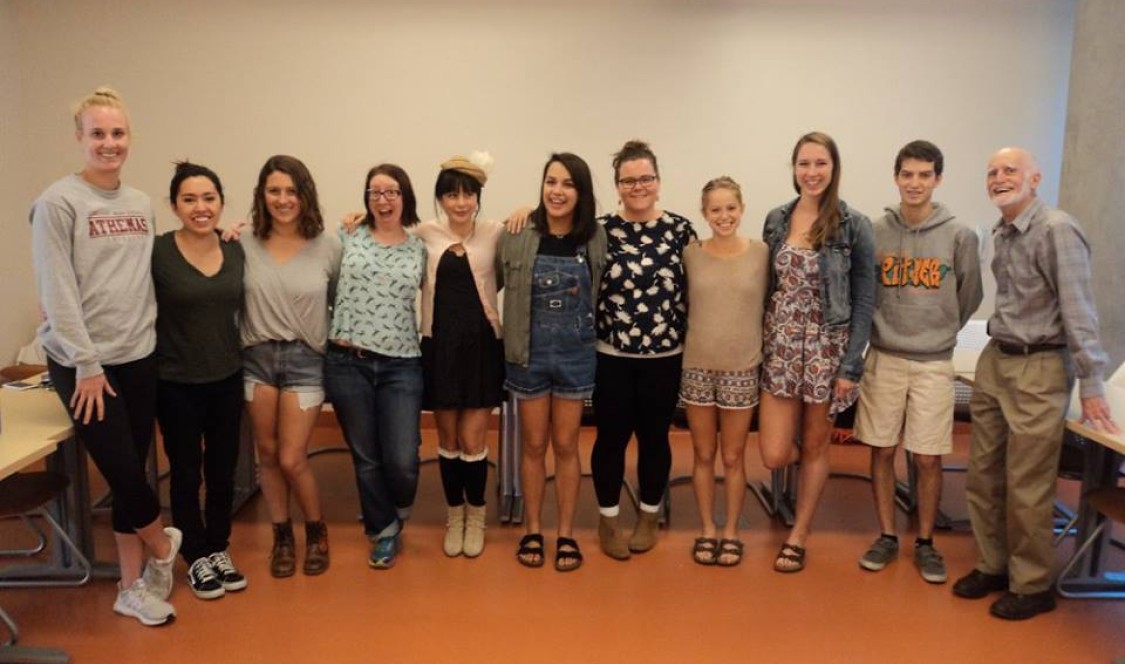Educating its students to live thoughtful and productive lives as responsible leaders on a global scale constitutes a major principle of Claremont McKenna College’s mission. By bringing internationally renowned scholars to campus, CMC’s Visiting Scholars Program offers students an avenue for attaining a global education, right here in Claremont.
The Visiting Scholars Program is “a fantastic opportunity for students and faculty alike. They [students and faculty] get to have direct connection with visiting scholars from around the world who are experts in their field,” Associate Dean of the Faculty Lee Skinner said. “Usually, we only get access to these scholars through reading their work or maybe a Skype session. But having visiting professors here for an extended period of time allows for an ongoing intellectual conversation or series of conversations with our students and faculty.”
Made possible because of a grant from The Andrew M. Mellon Foundation, six visiting scholars have been on campus since the program began at CMC in the fall of 2015, and three more are scheduled to be on campus in the spring of 2017. Scholars come to CMC from outside of the United States and are on campus for two to four weeks.
Cuban novelist Wendy Guerra is just one of the visiting scholars that has already been on campus. Guerra traveled to CMC last February by invitation of Associate Professor of Spanish Salvador Velazco. Visiting scholars share their expertise and work with students and faculty in a variety of ways: classroom lectures, talks at the Athenaeum, discussion groups and attendance at conferences are among a few of the examples.
“The idea is that the visiting scholars don’t duplicate areas of specialty that we already have here. Rather, they bring something new that we don’t currently offer,” Skinner said.
For two weeks in mid-February, Associate Professor of History Shane Bjornlie is hosting Yitzhak Hen, the Anna and Sam Lopin Professor of History at Ben-Gurion University of the Negev in Israel. Professor Hen is one of the leading scholars in the study of the early Middle Ages. Hen’s scholarly work is notable, according to Professor Bjornlie, because he focuses on the intersections of ethnicities and religion.
“It is really a privilege to be able to bring him [Hen] to CMC,” Bjornlie said, “especially because most of the conferences and associations that Professor Hen is a member of tend to be in Europe.”
A pair of lectures in Professor Bjornlie’s course on Late Antiquity, a lecture at the Athenaeum, and a conference at Pomona College highlight Professor Hen’s itinerary.
Also in February, Assistant Professor of Religious Studies Jamel Velji is bringing Nader El-Bizri to campus. El-Bizri is the Director of the Civilization Studies Program, Director of the Anis Makdisi Program in Literature, and Islamic Studies Coordinator at the Center for Arab & Middle Eastern Studies at the American University of Beirut. Professor El-Bizri is a polymathic scholar who has published extensively in the fields of architectural humanities, Islamic philosophy, and the exact sciences. During his time on campus, he will be giving an Athenaeum talk and then in Professor Velji’s course on the apocalypse, El-Bizri will give an overview of Islamic philosophy. He also will discuss in more detail Islamic philosophical (and perhaps architectural) approaches to the end of time.
During the first two weeks of April, Professor of Philosophy Amy Kind will welcome Kathleen Stock to CMC to teach a module on issues relating to imagination and fiction in her Philosophy 198 class, an advanced seminar on imagination. During Stock’s visit, she also will give a talk at the Athenaeum and present her research in a philosophy department colloquium.
“Dr. Stock's expertise on imagination nicely complements my own. While much of my own research is on imagination, her research on imagination and fiction brings something importantly new to the table,” Kind said. “Moreover, having her here brings an importantly different perspective to the classroom, for there are several issues relating to imagination about which we disagree. I am so pleased that the students will get exposure to multiple sides of these issues, and perhaps even more importantly, that Dr. Stock and I will be able to model for them how scholars engage in philosophical dialogue.”
Other global education opportunities made available to students as a result of the grant from The Andrew M. Mellon Foundation include linking humanities and history courses at CMC to Los Angeles-area cultural sites and activities, research grants for students preparing theses in humanities and history, and linking curriculum to study outside of the United States.
Student field trips in the Los Angeles area have included visits to plays, film festivals, the Getty Villa, the Huntington Library, the Los Angeles County Museum of Art, the Museum of Latin American Art, and the French Film Festival.
Each of the aforementioned opportunities helps shape students with a global perspective, which is an important staple of a CMC education. According to Professor Skinner, this program has enabled CMC to continue to foster global connections in a variety of fields.

